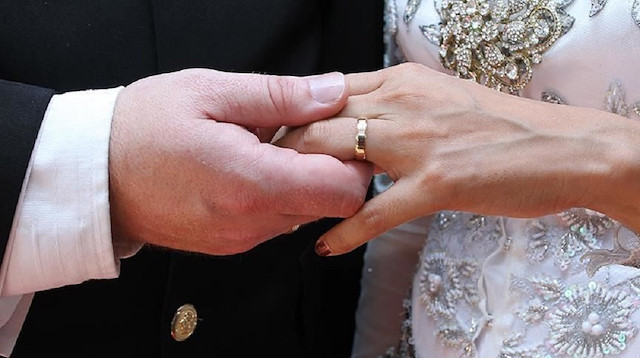Married couples coming to therapy on rise during pandemic in Turkey

Uncertainties in pandemic lead to despair, stress among unmarried couples, says family, couples therapist
As the world just got through a Feb. 14 Valentine's Day under the shadow of the coronavirus pandemic, Anadolu Agency spoke with a family and adolescent therapist in Turkey about how the pandemic has affected both married and unmarried couples psychologically.
Therapist Gunes Kucuk told Anadolu Agency that the pandemic impacted married and unmarried couples from different angles and at different levels.
"As this process continued, somatic conditions such as anxiety disorders, panic attacks, depression, acute stress disorder, and post-traumatic stress disorder began to be seen more," said Kucuk.
Mentioning that families were affected at different levels according to their cultural, structural, social, and economic status within themselves, she told the agency that families with "strong social support were stronger in coping with the process despite everything."
"Families who had good peer-to-peer communication before the pandemic were able to overcome this situation easily. Families that had problematic communication before the pandemic were more affected by this process. That's what I saw from my clients."
She added that, especially in families experiencing loss, the mourning process and the trauma wrought by the disease also started to uncover psychological reactions.
"I didn't have clients who got divorced just because of the effects of the pandemic. But the pandemic was also a significant factor for those who did," said Kucuk.
She also noted that there had been an increase among couples seeking assistance through therapy during the pandemic.
"In this process, family members who had to stay indoors experienced violence, conflict and other difficulties in their relationships. There was an increase in alcohol, substance and drug use. I would say that increasing stressors and declining social ties have laid the groundwork for domestic violence."
- Unmarried vs. married couples
When asked about whether married or unmarried couples had the most difficulties overcoming the effects of this process, she told the agency that the pandemic tested partners' commitment to each other and their outlook on life.
"Uncertainties, unpredictable [conditions] and misinformation in the pandemic process led to despair and stress among unmarried couples," stated Kucuk.
"During this process, couples who didn't spend quality time together and couldn't get together frequently decided to break up. Those who decided to marry also felt the sadness of not being able to have a wedding ceremony as they've imagined."
Underlining that couples with strong communication and social ties survived this process more comfortably, Kucuk said: "Individuals living alone had a lower state of endurance than others."
- Minimizing pandemic's effects
Kucuk mentioned that in couples, both sides should focus on their own well-being, as well as their partners' happiness. She also made suggestions for them to overcome the adverse effects of the outbreak.
"I suggest that individuals living in the same house deal with their individual development outside of their daily duties and responsibilities. I suggest that both adults and children engage in artistic activities, learn something new, read books, visit virtual museums, go to online theaters to spend quality time at home. I think this process is an opportunity to do what they haven't had a chance to do or learn so far.
"Also, many educators, writers and artists teach online courses and give interviews and presentations. I think participating in such events will contribute to their [couples'] development. Especially for people who have self-control problems, this process can be perfect for development."
Reklam yükleniyor...
Reklam yükleniyor...







Comments you share on our site are a valuable resource for other users. Please be respectful of different opinions and other users. Avoid using rude, aggressive, derogatory, or discriminatory language.